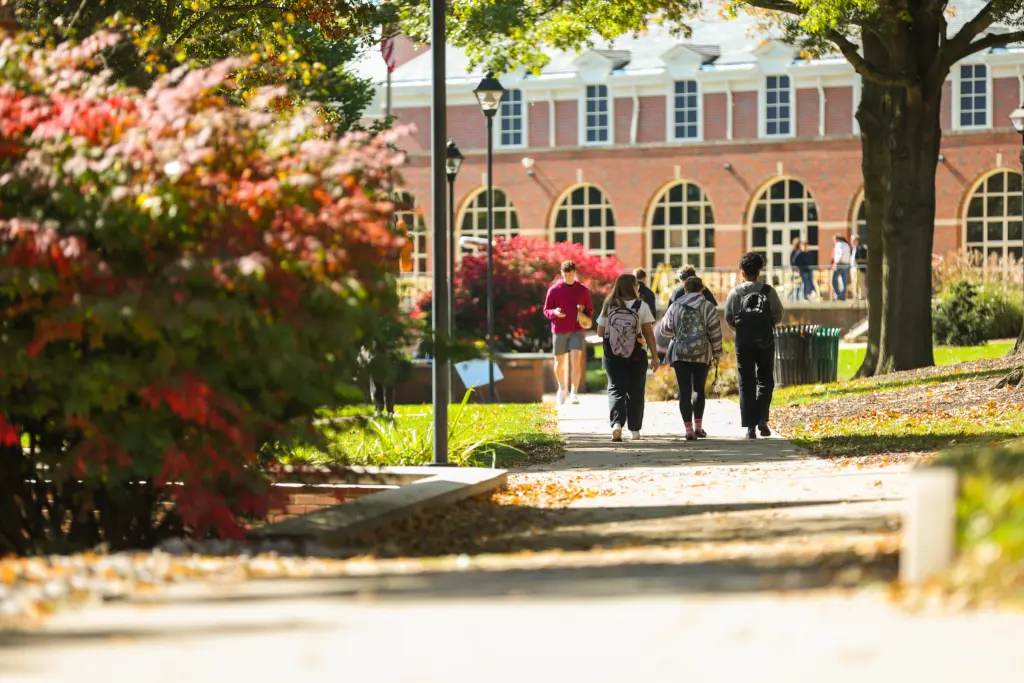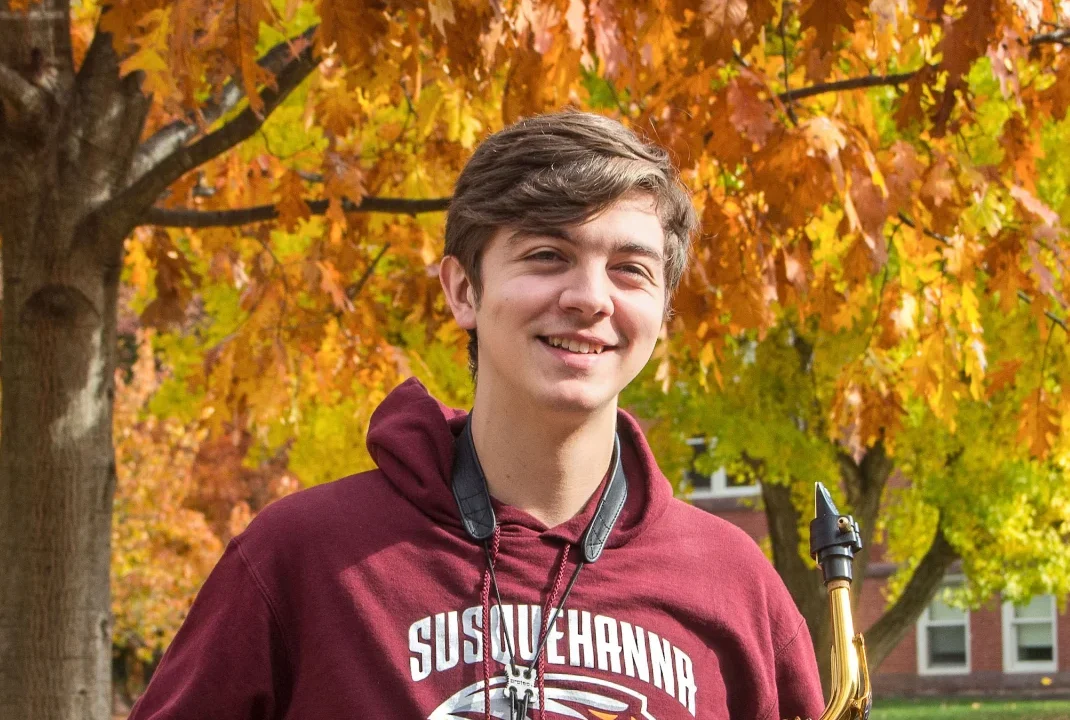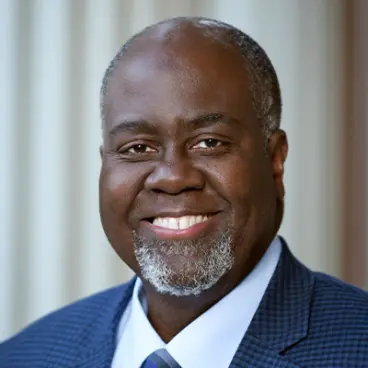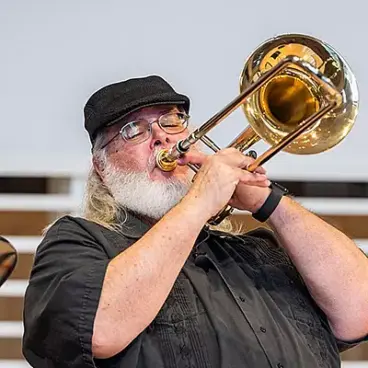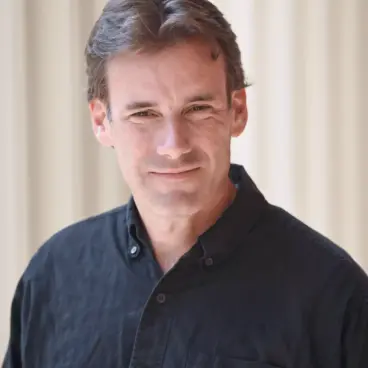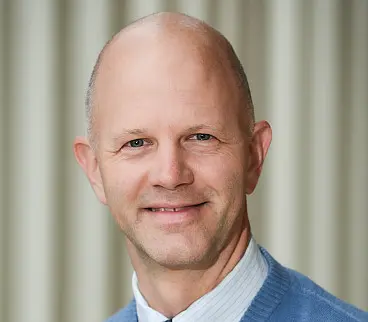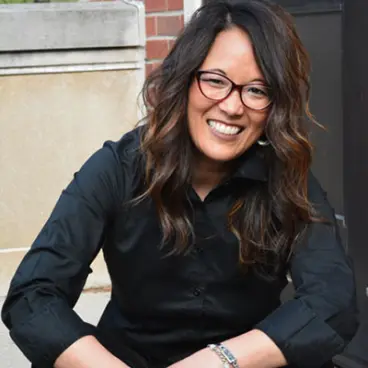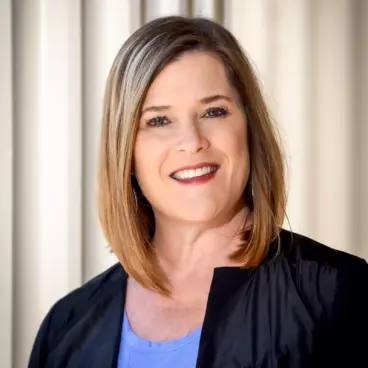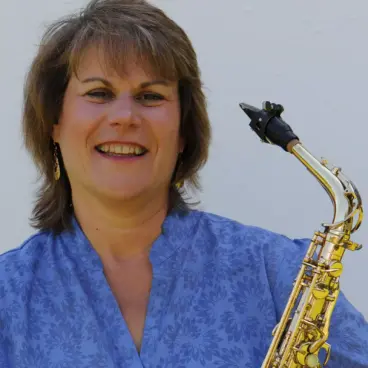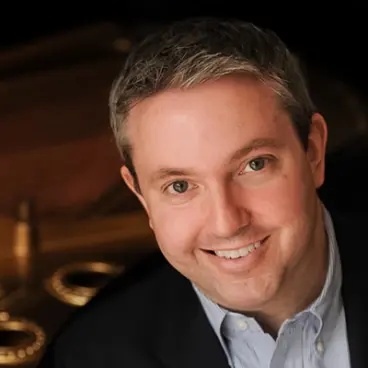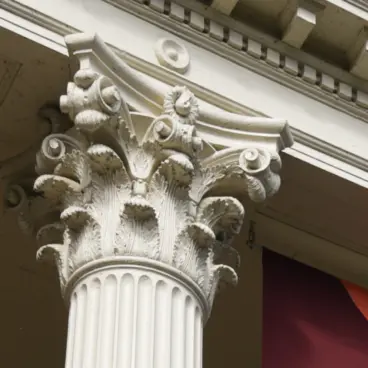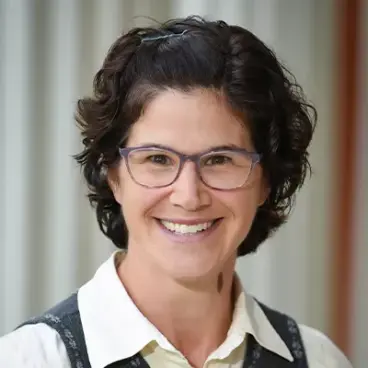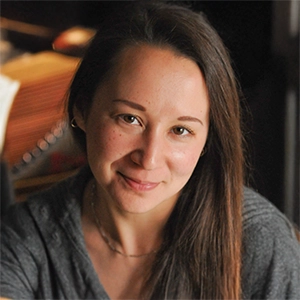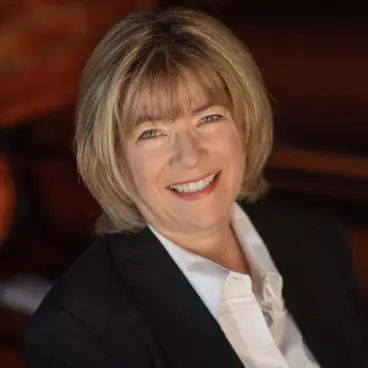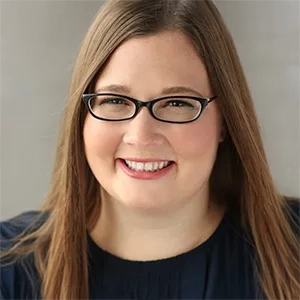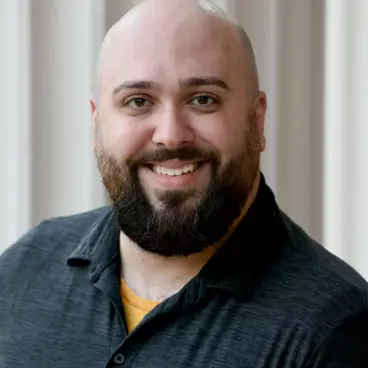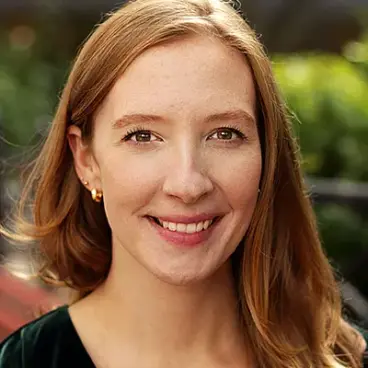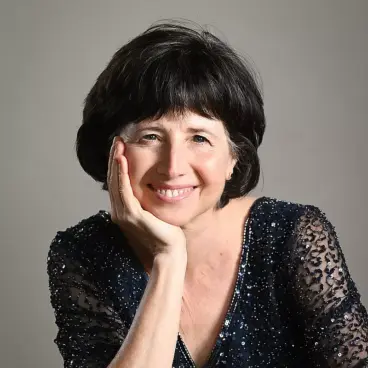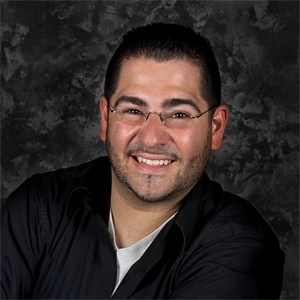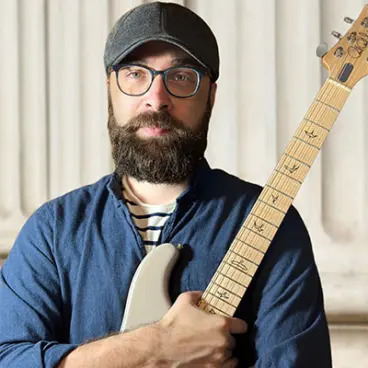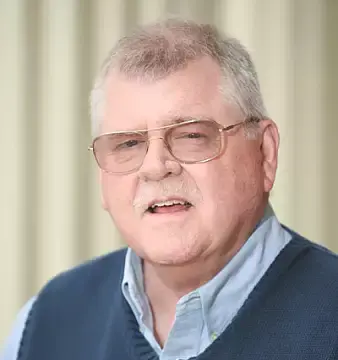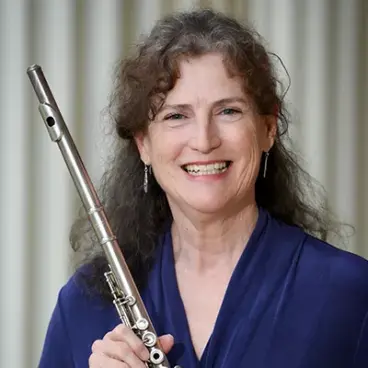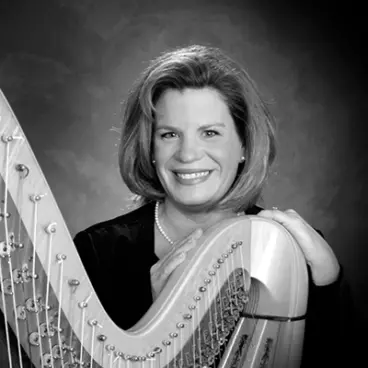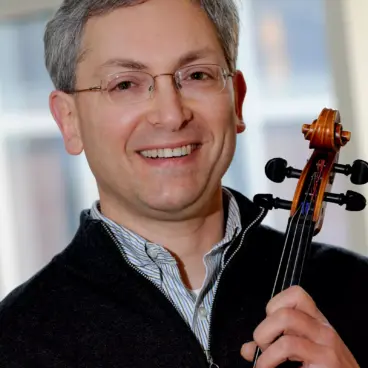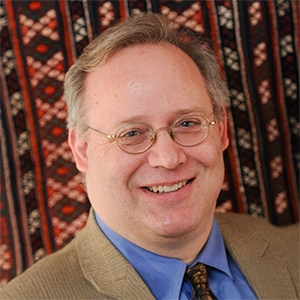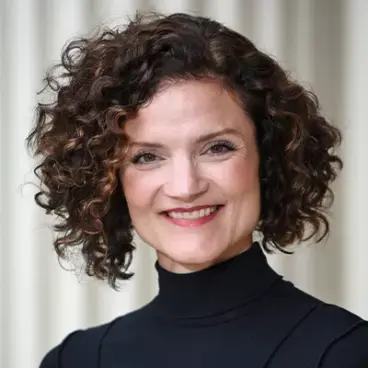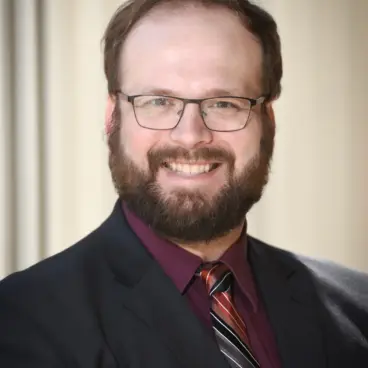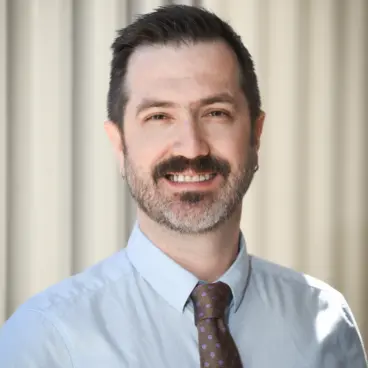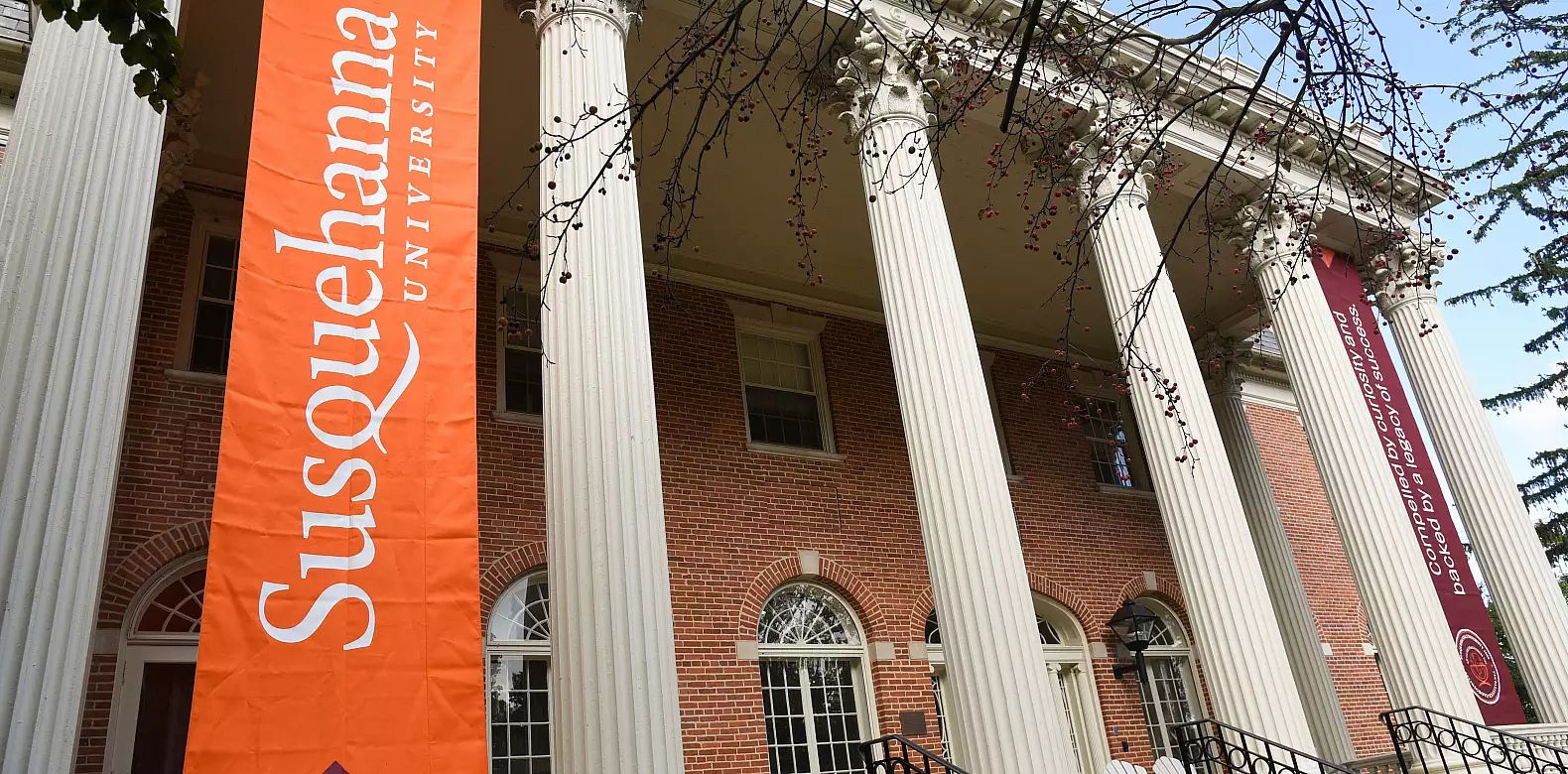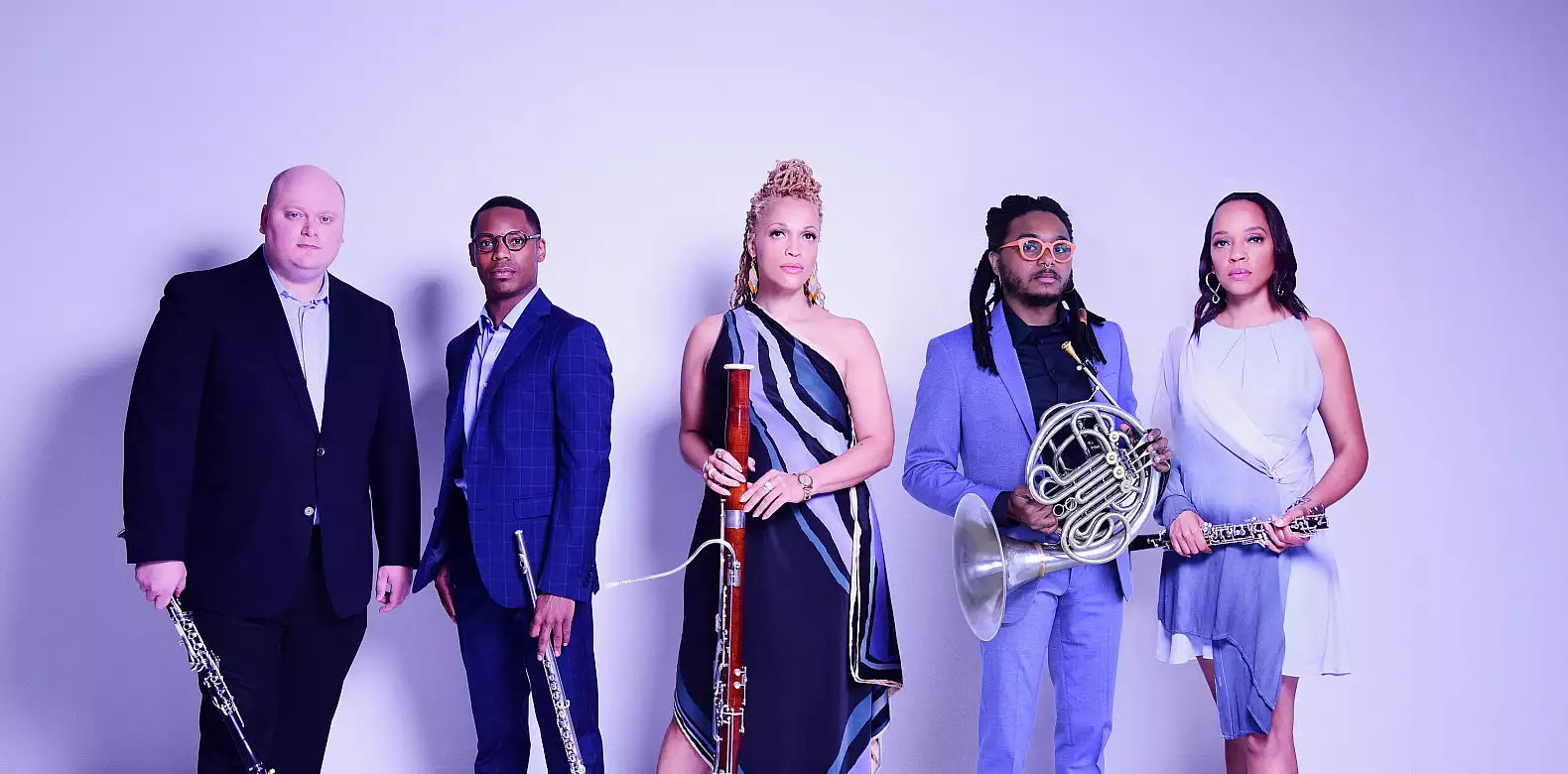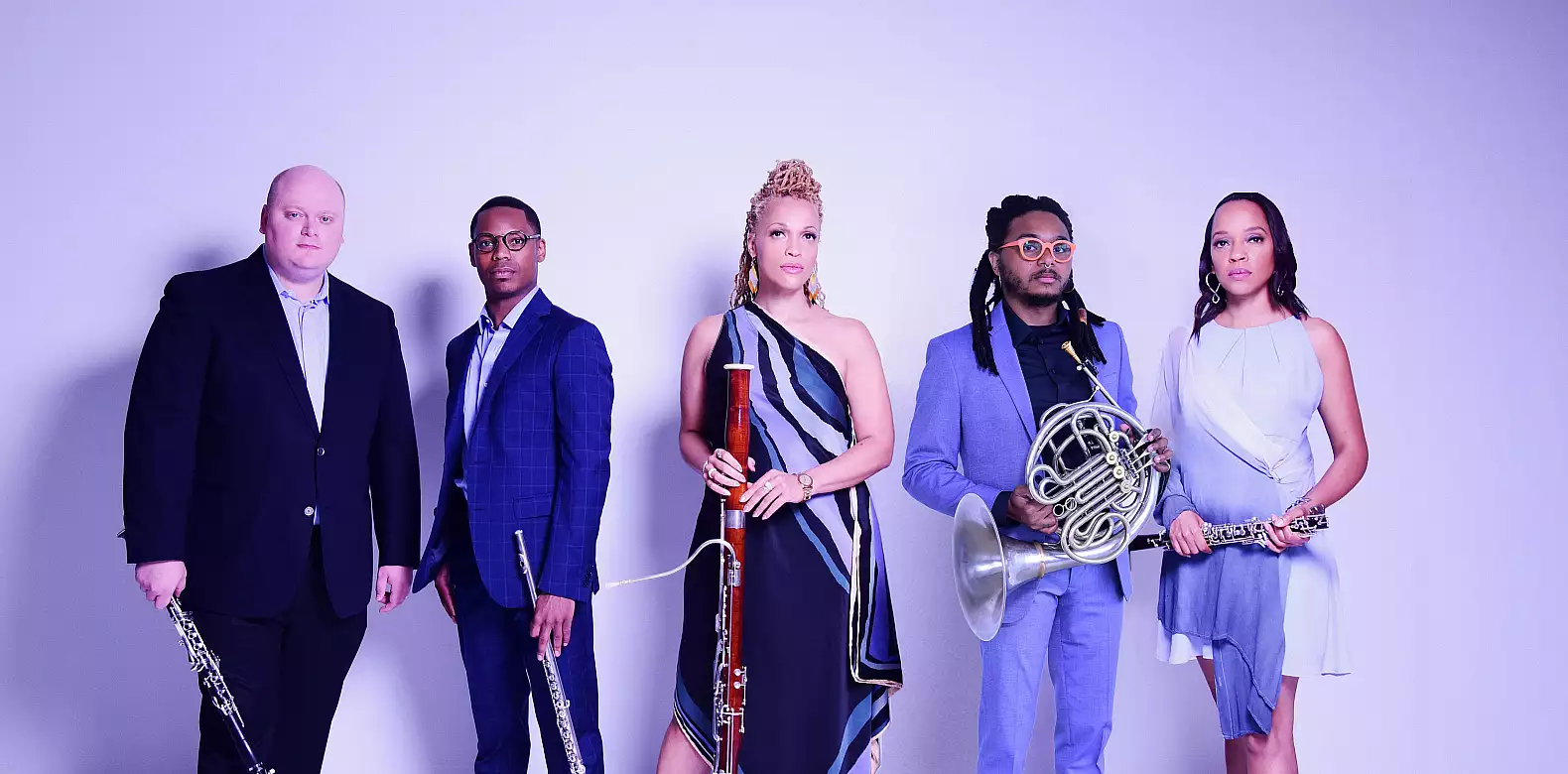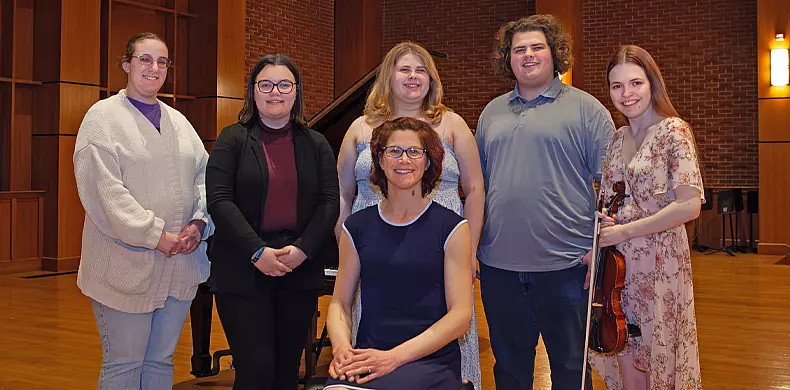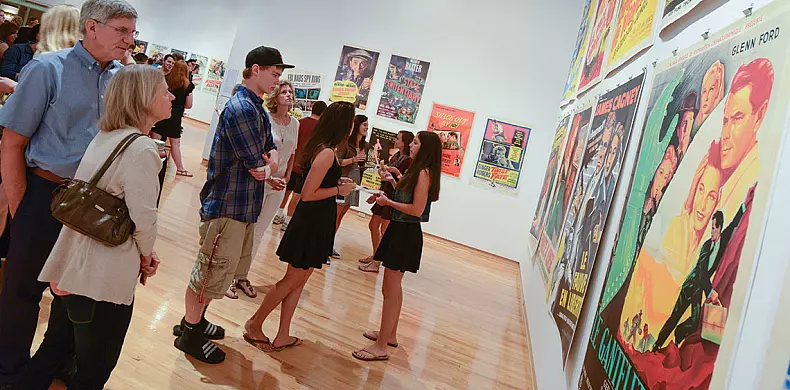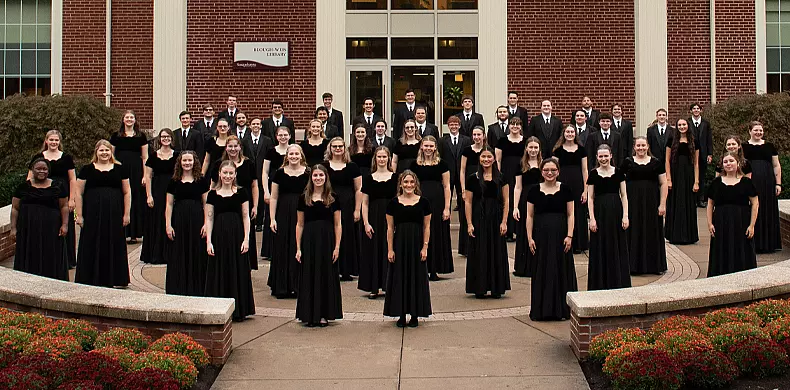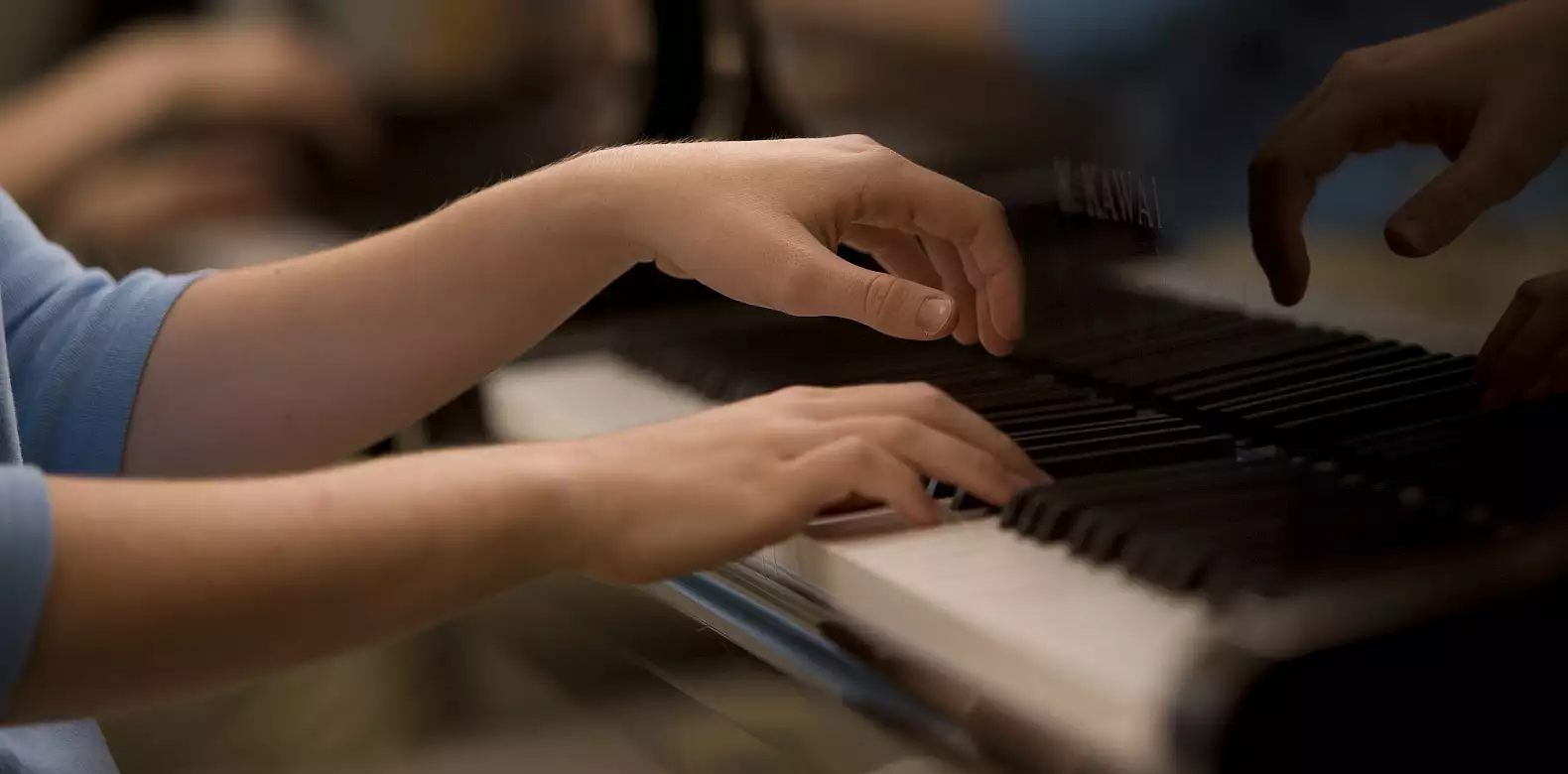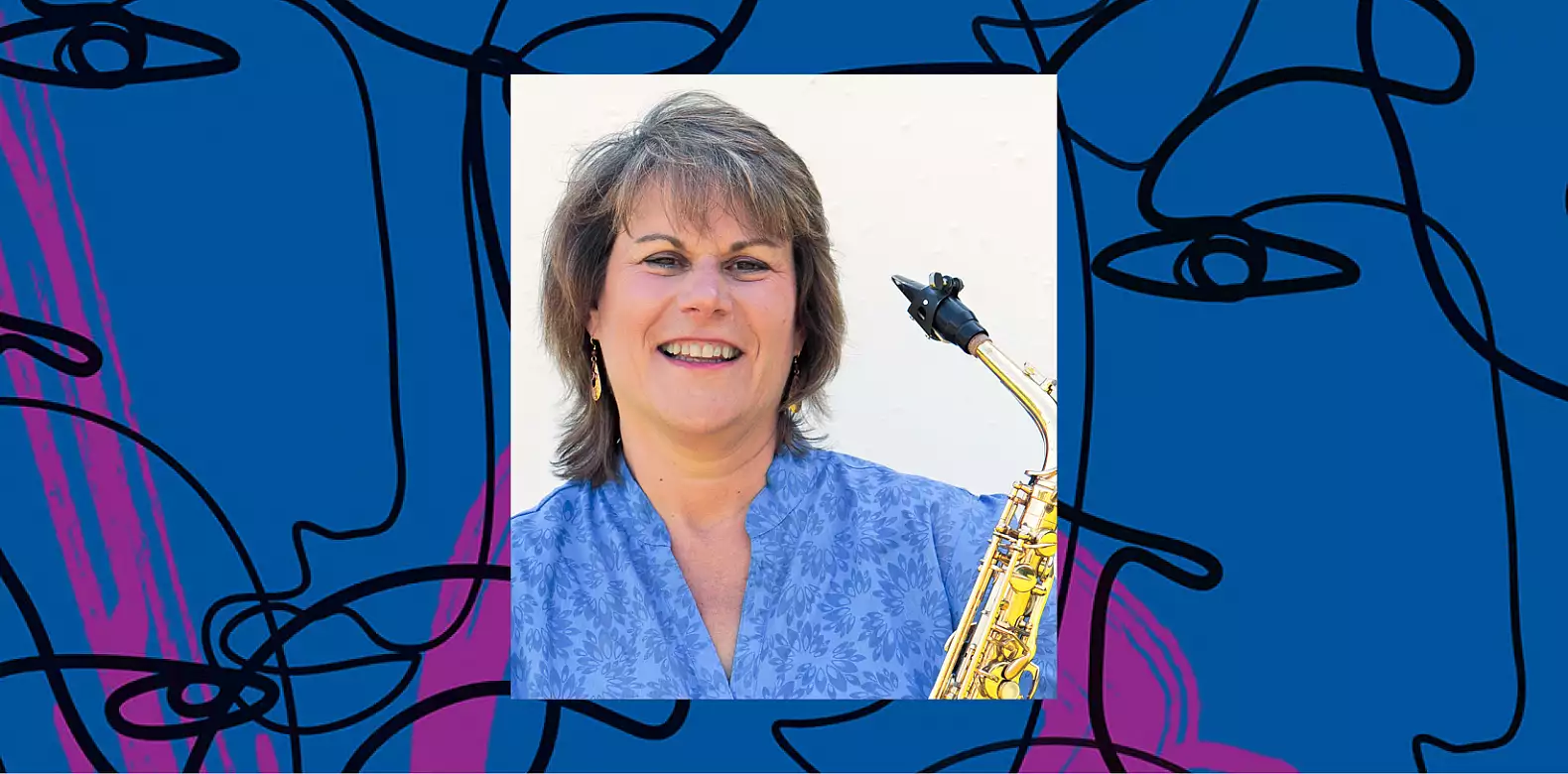
Learn more about the audition process.
Music Performance Degree
“Music gives a soul to the universe, wings to the mind, flight to the imagination and life to everything.” — Plato
While pursuing a Music Performance degree at Susquehanna University, you’ll have the opportunity to bring your soul, mind and imagination to a vibrant community of performers. This is a place where young musicians thrive. You’ll be taught by devoted professors who believe in the process of creative individual practice, inspiring lessons, master classes and rehearsals that lead to fulfilling performances.
As a student, you’ll experience frequent opportunities for solo performances in low-pressure venues. A successful concert represents just a small part of the rich daily life of performers, and you’ll be able to fully immerse yourself in the deep life of a musician, while also pursuing scholarly interests and being supported by your talented peers.
The music preparatory program offers undergraduate students the opportunity to gain teaching experience working with schoolchildren in our community. If you’re looking for a place to grow and flourish as a musician, Susquehanna University’s music program is the choice for you.
Performance Opportunities
Choral ensembles perform on and off campus and contribute to major university events, including the annual Candlelight Service. There are four distinct ensembles. Any student, regardless of major, may audition.
Choir
The celebrated University Choir represents Susquehanna’s great musical heritage on annual tours in Pennsylvania and throughout the Eastern United States.
Amy Voorhees, conductor
Chorale
The University Chorale performs mainly on campus in music ranging from the Renaissance to the present.
Amy Caron, conductor
Chamber Singers
The highly select University Chamber Singers are chosen from members of the University Choir.
Amy Voorhees, conductor
Chapel Choir
The Chapel Choir provides musical leadership at weekly University Chapel services and is open to all students without an audition.
Marcos Krieger, conductor
Opera Studio
The Opera Studio performs a wide repertoire ranging from opera scenes to full productions of complete operas with orchestra. The casts are made up entirely of students who audition for the Opera Studio at the beginning of each year.
In the past dozen years, the full productions with orchestra have included:
- Krása: Brundibár
- Monteverdi: L’Orfeo
- Mozart: The Magic Flute
- Puccini: Gianni Schicchi (in Italian)
- Puccini: Suor Angelica (in Itallian)
- Sondheim: Passion
- J. Strauss: Die Fledermaus
- Gilbert & Sullivan: The Mikado
- Ullmann: The Emperor of Atlantis
- Weill: Street Scene
- Weill: The Threepenny Opera
Scenes programs have included the complete third act of Puccini’s La Bohème, sung in Italian, and complete acts of Britten’s Albert Herring and A Midsummer Night’s Dream. Other recent programs have featured scenes from the following operas:
- Adamo: Little Women
- Gounod: Romeo and Juliet
- Handel: Julius Caesar
- Massenet: Manon
- Menotti: The Medium
- Mozart: Così fan tutte and Don Giovanni
- Poulenc: Dialogues of the Carmelites
- Rossini: La Cenerentola and The Barber of Seville
- R. Strauss: Arabella
- Thomas: Hamlet
- Verdi: Falstaff
- Ward: The Crucible
Opera Studio performances are held in the 320-seat Stretansky Concert Hall or in the 450-seat Degenstein Center Theater. David Steinau, director
The instrumental area provides extensive performance opportunities for players of string, wind and percussion instruments. Any student, regardless of major, is welcome to audition.
Symphony Orchestra
The Symphony Orchestra performs the great music of the Western canon along with lesser-known works and premieres. The ensemble accompanies an annual concerto competition winner and regularly collaborates on opera productions and oratorios.
Zachary Levi, conductor
Wind Ensemble
The highly select University Wind Ensemble is composed of 45 to 50 of our most experienced players and performs the finest wind band repertoire.
Eric Hinton, conductor
Symphonic Band
The University Symphonic Band performs three annual concerts of a broad spectrum of concert band literature.
Eric Hinton, conductor
Stadium Band
At all home football games, the Stadium Band performs fight songs, popular songs of the 50s and 60s, patriotic songs, R&B and funk. Audition not required.
Brett Hosterman, director
Jazz Ensemble
The Jazz Ensemble explores traditional big band tunes, as well as modern music reflecting jazz, rock and world music influences. Small combos are regularly formed to emphasize improvisation.
Gail Levinsky, director
Pit Orchestra
This ensemble provides full orchestral accompaniment for the annual fall musical.
The chamber music program provides diverse opportunities for students to study significant works for small ensembles, each of which is coached weekly by a faculty member. Each semester there may be string quartets, piano trios and brass or woodwind quintets, for example, along with Percussion Ensemble, Saxophone Ensemble, Trombone Ensemble and similar groupings.
Keyboard students have the opportunity to study with outstanding faculty and to perform in a variety of settings as soloists and collaborators. Our instrument inventory includes Steinway and Baldwin concert grand pianos and priority practice rooms outfitted with well-maintained Steinway, Yamaha and Baldwin grands.
Weber Chapel is home to beautifully refurbished Dobson and Moeller organs, on which students may practice and perform. Two additional practice organs are located in the Cunningham Center for Music and Art. We also maintain historic instruments including three harpsichords and a clavinova.
Piano students may also study organ, and vice versa, and any keyboard player may also study harpsichord.
Take Your Music to the Next Level
The next step in your musical journey is with Susquehanna University’s music program. Susquehanna is a liberal arts college bursting with opportunities. Perform, compose, conduct and learn with one of the finest music communities around.
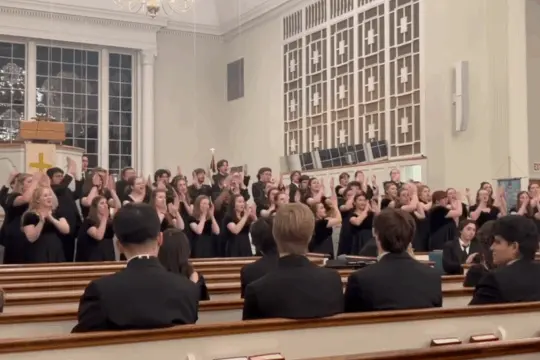
SUsquehanna By the Numbers
More Than Metrics
95%
of students study abroad
99%
of students receive financial aid through academic merit scholarships and need-based grants
12:1
student-to-faculty ratio
Where Passion Meets Purpose
Straight from the Nest
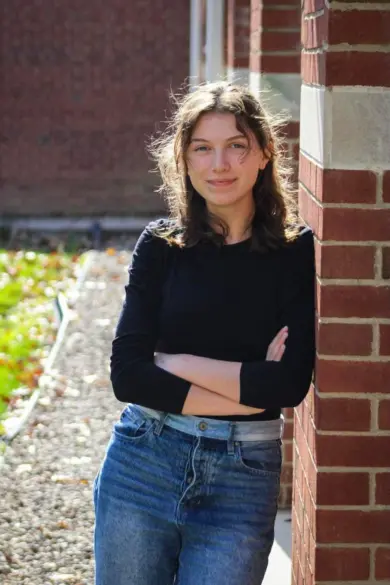
“I appreciate that Susquehanna allows me to pursue my passions for music, performance and Spanish studies simultaneously. There are so many opportunities to perform and grow.”
— McKenna Mowry ’26
Explore Your Studies
Program Resources
Music Courses
Development of good tonal quality, technical facility and interpretation of solo and chamber literature. 1 SH. This course requires instructor permission to enroll.
Development of good tonal quality, technical facility and interpretation of solo and chamber literature. 2 SH. This course requires instructor permission to enroll.
Emphasizes acquisition of a sound technique. Includes standard recital literature and worship service literature chosen to meet individual needs. 1 SH.
Emphasizes acquisition of a sound technique. Includes standard recital literature and worship service literature chosen to meet individual needs. 1 SH.
The study of Western concert music for the piano. 1 SH. This course requires instructor permission to enroll.
The study of Western concert music for the piano. 2 SH. This course requires instructor permission to enroll.
Development of tone and technical facility and mastery of solo literature. 1 SH. This course requires instructor permission to enroll.
Development of tone and technical facility and mastery of solo literature. 2 SH. This course requires instructor permission to enroll.
Focuses on teaching the student to sing freely and musically. Develops breath control and resonance, range quality and clear diction through exercises and selected vocal literature. 1 SH. This course requires instructor permission to enroll.
Focuses on teaching the student to sing freely and musically. Develops breath control and resonance, range quality and clear diction through exercises and selected vocal literature. 2 SH. This course requires instructor permission to enroll.
Development of good tonal quality, technical facility and interpretation of solo and chamber literature. 1 SH.
Development of good tonal quality, technical facility and interpretation of solo and chamber literature. 2 SH.
Development of technical facility on all areas of percussion: timpani, drum set, mallets, auxiliary percussion, ethnic percussion and snare drum. Includes interpretation and musical training, emphasizing well-rounded ability. 1 SH. This course requires instructor permission to enroll.
Development of technical facility on all areas of percussion: timpani, drum set, mallets, auxiliary percussion, ethnic percussion and snare drum. Includes interpretation and musical training, emphasizing well-rounded ability. 2 SH. This course requires instructor permission to enroll.
Emphasizes the acquisition of a sound technique. Includes standard literature selected to meet individual needs and continuous playing. 1 SH. This course requires instructor permission to enroll.
Emphasizes the acquisition of a sound technique. Includes standard literature selected to meet individual needs and continuous playing. 2 SH. This course requires instructor permission to enroll.
Private instruction in classical and jazz guitar. Includes extensive exploration of basic musical repertoire, such as Pujol, Guiliani, Carcassi and Sor and the works of other jazz composers; scales, arpeggios, triads and other technical matters. Investigates folk, popular and electric guitar techniques. 1 SH. This course requires instructor permission to enroll.
Private instruction in classical and jazz guitar. Includes extensive exploration of basic musical repertoire, such as Pujol, Guiliani, Carcassi and Sor and the works of other jazz composers; scales, arpeggios, triads and other technical matters. Investigates folk, popular and electric guitar techniques. 2 SH. This course requires instructor permission to enroll.
MUSC-019 is the study of repertoire for piano and another instrument(s). As the repertoire is vast and varied, one can expect to study from a variety of time periods and genres, including but not limited to vocal and chamber music. Repertoire assigned will be based on the student’s skill level, experience and the individual’s educational goals. 1 SH.
Private instruction in crafting and notating musical works. Prerequisite: permission of instructor. 1 SH.
Private instruction in crafting and notating musical works. Prerequisite: permission of instructor. 2 SH.
Develop the sight-reading ability and specific piano technique needed by collaborative pianists. Among the emphasized topics covered include quick and efficient sight reading, eye placement in multi-layered scores, score embellishment, breathing, hand-eye coordination, core and arm weight, and finger work. Prerequisite: Permission from the Director of the Minor in Collaborative Piano. 1 SH.
A functional approach for beginning students. Emphasis on harmonization, transportation, development of technique, sight-reading and improvisation. Non-music majors are able to enroll in this course only if there are spaces available after all of the music majors have been accommodated. 1 SH.
Continued emphasis on harmonization, transposition, development of technique, sight reading and improvisation. Non-music majors are able to enroll in this course only if there are spaces available after all of the music majors have been accommodated. Prerequisite: C- or better in MUSC-034 or appropriate placement. 1 SH.
A functional approach for intermediate-level and advanced students. Further emphasis on harmonization, transposition, development of technique, sight-reading and improvisation. Non-music majors are able to enroll in this course only if there are spaces available after all of the music majors have been accommodated. Prerequisite: C- or better in MUSC-035 or appropriate placement by department. 1 SH.
An in-depth look at piano technique through the analysis and discussion of physical movements that can either implement or prohibit good technique, and the analysis of the basic building blocks of piano playing. Emphasis on preventing injury, learning how to expend minimal energy in playing and the creation of good tone. Open to piano majors; secondary pianists by instructor consent. 1 SH. Offered every other year.
Study of the fundamental keyboard skills needed to rehearse choral ensembles and/or teach singing, including the ability to play open score and provide choral and solo vocal accompaniments. Those not required to take the course may enroll only if there are spaces available. Prerequisite: C- or better in MUSC-037 or appropriate placement by department. 1 SH.
Support Skills for Collaborative Pianists aims to introduce and broadly develop a vast range of skills needed by collaborative pianists, including: “quick study” skills used to prepare scores of all types in a short amount of time; rehearsal and coaching techniques; organization and communication skills; and other specialized skills relevant to collaborative piano. Prerequisite: MUSC-033. 1 SH.
Designed to instruct pianists in the essential aspects of performing chamber music and accompaniments. Prerequisite: Instructor’s permission. May be repeated. 1 SH.
A select instrumental performing group that rehearses and performs the finest traditional and contemporary repertoire for the medium. 1 SH.
An instrumental performing group that rehearses and performs during the football season only. 1 SH.
A performing ensemble specializing in standard symphonic repertoire, concerti, opera and oratorio. 1 SH.
Accompanies the annual student musical production. Fall semester only. 1 SH.
Chamber music of various styles and periods studied and performed in smaller string, woodwind, brass and percussion ensembles, including piano and organ. 1 SH.
A practicum in which students perform on a broad range of band and orchestral instruments and in choral ensembles. 1 SH.
The rehearsal and performance of 20th century and modern music reflecting jazz, rock and world music influences. Emphasizes individual student involvement through improvisation. 1 SH.
Exploration and development of improvisation through listening, analysis and performance skills practice. Prerequisites: ability to read music; vocal or instrumental proficiency, both at a level commensurate with admission to a university ensemble. May be repeated for credit. 1 SH.
A major performing ensemble dedicated to high standards of choral performance. A training laboratory, the choir also explores extensive choral literature and techniques of developing choral singing for future music educators. In addition to campus and area concerts, the group tours regularly. Auditions are held each August and are open to any student. 1 SH.
A mixed-voice campus-centered ensemble, the University Chorale rehearses and performs a wide variety of sacred and secular choral literature in campus and area concerts. Auditions are held each August and are open to any student. 1 SH.
Introduces the international phonetic alphabet and the principles of making phonetic transcriptions of Italian, French and German texts. Basic pronunciation skills are also practiced. 1 SH.
An extension of the principles introduced in Diction I with particular emphasis on singing in foreign languages and in English. Prerequisite: MUSC-084 or instructor’s permission. 1 SH. Offered every three years.
This ensemble provides singers with a more intimate choral setting while exploring diverse repertoire appropriate for chamber performance. Auditions are held each fall and are open to any member of the University Choir. 1 SH.
An ensemble emphasizing the rehearsal and performance of opera and musical theatre. 1 SH. This course requires instructor permission to enroll.
Development of appreciation and understanding for music, its underlying elements, and aspects of style and historical setting. Not open to music majors. 4 SH. CC: Artistic Expression.
Historical overview of the development and evolution of jazz styles through listening, analysis and performance. Open to all music majors and non-majors. CC: Artistic Expression, Diversity Intensive. 4 SH.
A study of American popular music from the 1950s to the present, with a particular focus on the societal trends that influenced the evolution of this music. 4 SH. CC: Artistic Expression.
An introduction to concepts of musical style from historical and global perspectives. World music and contemporary music will inform this overview of musical genres and practices. Special attention will be given to issues of cultural diversity that arise through the study of non-Western music. Students will explore and develop learning strategies for approaching this material and college-level work in general. Prerequisite: Must be an accepted music major or minor or have the permission of the instructor. 2 SH. CC: Diversity Intensive.
A study of 18th- and 19th-century harmonic practice, including intervals, scales and diatonic triads in all positions. Analysis of standard literature. Prerequisite: Department-approved proficiency. 2 SH.
Continuation of Theory I: Diatonic Harmony, including diatonic seventh chords in all inversions and modulation. Analysis of standard literature. Prerequisite: C- or better in MUSC-161. 2 SH.
Prepared and sight-singing of simple diatonic melodies in the major and minor modes. Includes simple rhythmic and melodic dictation. Prerequisite: Department-approved proficiency. 2 SH. This course requires instructor permission to enroll.
Continuation of Ear Training I, including chromaticism and modulation. Includes two-part and four-part dictation. Prerequisite: C- or better in MUSC-163. 2 SH.
Public performances between piano and another instrument(s) in a forum or student recital setting. Prerequisite: Approval by the student’s collaborative piano teacher. 0 SH.
Examines the theological and musicological aspects of artistic contributions to Christian worship as recognized in cultural settings. Same as RELI-215. Prerequisite: junior standing and ability to read music. 4 SH. CC: Artistic Expression, Diversity Intensive, Interdisciplinary. Offered every three years.
This course explores issues of diversity and ethics surrounding race, gender, religion, and culture in the Western classical music world — both historically and in the present — and how privilege, and particularly power in this discipline, perpetuate these issues. Students must possess the ability to read musical notation to be successful in this course. 4 SH. CC: Artistic Expression, Diversity, Ethics Intensive.
A multi-faceted examination of Lin-Manuel Miranda’s ground-breaking and influential musical “Hamilton,” with continued reflection as to its cultural significance. 4SH. CC: Artistic Expression, Diversity Intensive.
Music history and literature from the beginning of Western civilization until 1750. Prerequisite: MUSC-101 or MUSC-152, and MUSC-161. 4 SH. CC: Historical Perspectives, Interdisciplinary.
Music history and literature from 1750 until 1900. Prerequisite: MUSC-245. 4 SH. CC: Artistic Expression, Writing Intensive.
Exploration of the art, technique and history of music developed in the late 19th and early 20th centuries to accompany silent movies. 4SH.
Continuation of Theory II: study of advanced tonal and post-tonal harmony. Prerequisite: C- or better in MUSC-162. 2 SH.
The examination of musical works through analysis of harmonic, motivic and formal structures, with a special emphasis on post-tonal music. Prerequisite: C- or better in MUSC-261. 2 SH.
Advanced sight singing and dictation in all diatonic modes, including two-part and four-part dictation. Prerequisite: C- or better in MUSC-164. 2 SH.
Advanced sight singing and dictation including distant modulation, fragmented tonality and non-diatonic pitch collections. Prerequisite: C- or better in MUSC-263. 2 SH.
Examines selected topics which are not covered in the regular curriculum but which are of interest to faculty and students. 1-4 SH.
This course offers a foundational understanding of the challenges and skills relevant to performing arts leadership. Topics will include the establishment and functioning of arts organizations, organizational structures, arts managers, governing board dynamics, marketing and audience development, philanthropy and fundraising, basics of hiring and personnel relative to the arts, and strategies for successful arts programming. 4 SH.
Music history and literature from 1900 until the present. Prerequisite: Ability to read music. 2 SH. CC: Diversity Intensive.
A practical course designed to introduce the student to the work of the church musician as planner, administrator, leader and resource person. Incorporates the examination of material for use with soloists, instrumentalists, handbells and choral groups of all ages and in various denominations. Same as RELI-353. Prerequisites: MUSC-161 and MUSC-163. CC: Diversity Intensive. 4 SH. Offered every three years.
An in-depth study of fundamentals of sound. Topics covered include wiring and electronics as well as ear training and the building blocks of the modern recording studio. 4 SH. Offered every other year.
An introduction to techniques and practices employed by music producers in the recording studio. Issues of session organization, recording techniques, mixing and mastering techniques, and musical aesthetics will be explored. 4 SH. Offered every other year.
The analysis and writing of two- and three-voice counterpoint in 16th-century style, with an introduction to the contrapuntal techniques of the Baroque period. Prerequisite: MUSC-261. 2 SH. Offered every other year.
Designed to enhance the teaching of working music educators through a survey of eight different music technology topics, including live sound, recording, composition/notation, musical skills-acquisition, lab and studio design, computer-aided performance, and live/recorded multi-media and interactive lighting. 3 SH.
A survey of the electronic music hardware and software available in the computer music studio. The techniques used by both popular and classical electronic composers will be studied. Students will create original works of music or sound art using non-realtime processes. 4 SH. Offered every other year.
A study of real-time, interactive techniques for electronic music, and, to a lesser extent, video. Students will become familiar with the MAX/MSP/JITTER object-oriented programming language, as well as the collection of MIDI controllers in the Susquehanna computer music studio. Student work will result in a final concert. Prerequisite: sophomore standing. 4 SH. CC: Interdisciplinary. Offered every other year.
Designed to introduce students to the technique of conducting and to develop their ability to lead an ensemble with confidence. Prerequisites: MUSC-035, MUSC-162 and MUSC-164. 2 SH.
Technical aspects of composing or arranging music for instrumental ensembles of varying size and ability. 2 SH. Offered every other year.
Study of advanced gestural technique as applied to instrumental rehearsal and performance. Additional attention is given to rehearsal techniques, score study, performance practice and philosophical thought with regard to the art and craft of conducting. Prerequisite: MUSC-369. 2 SH.
Designed to provide students with a thorough understanding of choral conducting and rehearsal techniques. Prerequisite: MUSC-369. 2 SH.
Examines materials and methodology in the various areas and levels of applied studio teaching. 2 SH. Offered at least once annually with rotating topics.
Various topics in music literature, including piano, voice, organ, string, brass, percussion and woodwind literature. 2 SH. Offered at least once annually with rotating topics.
This course aims to introduce and broadly develop a working knowledge of the vast amount of repertoire that collaborative pianists experience, including vocal art songs, opera arias and oratorios, musical theatre pieces, instrumental character pieces, sonatas, and concerti. Prerequisite: At least 1 semester of MUSC-019. 1 SH.
Public recital performance for credit. Prerequisite: Approval by the music faculty on recommendation of the major teacher. 2 SH. Capstone.
In-depth study of a selected topic under faculty guidance. Includes a research paper or presentation or performance for students and faculty. Prerequisites: Securing a faculty sponsor, approval of topic by a music faculty committee and junior or senior standing. May be repeated for credit. 2-4 SH.
Public recital performance for credit. Prerequisite: Approval by the music faculty on recommendation of the major teacher. 0 SH.
Supervised work experience in fields such as recording, music merchandising, church music, music therapy, instrument repair and concert management. Prerequisites: Department head’s permission and a 2.75 or higher GPA. 0-12 SH.
In-depth study of a selected topic under faculty guidance. Includes a research paper or presentation or performance for students and faculty. Prerequisites: Securing a faculty sponsor, approval of topic by a music faculty committee and junior or senior standing. May be repeated for credit. 2 SH. Capstone.
Solo and ensemble performance in a semi-formal setting. Includes programs by visiting organizations, guest artists and lecturers. 0 SH.
Music Education
Basic knowledge of playing and teaching classroom instruments to prepare students to teach general music in the public schools. Includes historical development, literature, performance techniques and pedagogy. Prerequisites: MUED-200. Music majors only. 1 SH.
Basic knowledge of playing and teaching the band and orchestra instruments to prepare for instrumental teaching in the public schools. Includes historical development, literature, performance techniques and pedagogy. Music majors only. 1 SH.
Basic knowledge of playing and teaching the band and orchestra instruments to prepare for instrumental teaching in the public schools. Includes historical development, literature, performance techniques and pedagogy. Music majors only. 1 SH.
Basic knowledge of playing and teaching the band and orchestra instruments to prepare for instrumental teaching in the public schools. Includes historical development, literature, performance techniques and pedagogy. Music majors only. 1 SH.
Basic knowledge of playing and teaching the band and orchestra instruments to prepare for instrumental teaching in the public schools. Includes historical development, literature, performance techniques and pedagogy. Music majors only. 1 SH.
Basic knowledge of playing and teaching the band and orchestra instruments to prepare for instrumental teaching in the public schools. Includes historical development, literature, performance techniques and pedagogy. Music majors only. 1 SH.
Basic knowledge of playing and teaching the band and orchestra instruments to prepare for instrumental teaching in the public schools. Includes historical development, literature, performance techniques and pedagogy. Music majors only. 1 SH.
Basic knowledge of playing and teaching the band and orchestra instruments to prepare for instrumental teaching in the public schools. Includes historical development, literature, performance techniques and pedagogy. Music majors only. 1 SH.
An overview of the role of education and particularly music education in American society, as well as the historical, cultural and philosophical forces that have influenced public schooling. Incorporates topics related to current educational policy and practice and classroom observations at elementary and secondary levels of music instruction. 2 SH.
Study of the instructional methods and materials needed for teaching general music at all levels. Includes practicum. Prerequisites: junior standing, MUED-200. 4 SH.
Study of the instructional methods and materials needed for teaching instrumental music at all levels. Includes practicum. Prerequisites: junior standing, MUED-200. 4 SH.
Study of the instructional methods and materials needed for teaching choral music at all levels. Includes practicum. Prerequisites: junior standing, MUED-200. 4 SH.
Study of the instructional methods and materials, including legal, ethical and pedagogical competencies needed for teaching music to exceptional children. Includes practicum. Prerequisites: junior standing, MUED-200. 4 SH. CC: Ethics Intensive, Interdisciplinary.
Full-time, supervised teaching in public school music classrooms. Course credit represents preparation and planning, classroom performance, and classroom management. Students may not register for ensembles or lessons during the semester in which they student teach. Prerequisites: Successful completion of all first-year-, sophomore- and junior-level music education courses; music education coordinator’s permission; and acceptance into the education program. 12 SH. Capstone.
The course is required to be taken during the student teaching semester and is part of the culminating experience in the music education degree program. From a practitioner’s perspective, this course “emphasizes thorough insight into issues relevant to public school music teaching, reflection on current teaching trends, and methodology and development of skills for future teaching and professionalism.” This course fulfills portions of the Pennsylvania Department of Education (PDE) requirements for professionalism. 2 SH.
Independent research in music education under the supervision of an appropriate faculty member.
When you enroll at Susquehanna, you’ll be paired with an advisor and application tool to guide you in your course planning and scheduling. The following is an excerpt from the complete course catalog. Enrolled students follow the requirements of the course catalog for the academic year in which they declare each major and/or minor, consult with their advisor(s).
Learning Goals
- Performance — Students integrate technical skills and knowledge to be able to complete a successful performance in a particular area of concentration.
- Aural skills and analysis.
- Music history — Students can place music in historical, cultural and stylistic contexts.
- Composition and improvisation.
- Technology — Students identify and employ appropriate technology applicable to their area of specialization.
- Synthesis — Students integrate their music studies through a means appropriate to their curriculum.
Students in the music department may, with department head approval, complete a music technology minor in addition to a major in music.
Double-counting Restriction
Students pursuing a major in the music department may double-count a maximum of 8 semester hours toward another major or minor.
Music Opportunities for Non-Music Majors
The department provides a variety of music opportunities for all students, regardless of their majors and career goals. Non-majors may take upper-level music courses with permission of the instructor. The department also welcomes non-majors in performing groups and private study upon a successful audition or permission from the instructor.
Bachelor of Music in Performance
Music students who desire a specialized emphasis in performance may choose this degree option. Accepted majors possess superior skill in the given performance area and demonstrate that skill at forums and recitals. Students who complete this program typically continue studying at the graduate level and/or teach in a private studio. Candidates complete the university Central Curriculum requirements plus the following courses with a minimum grade average of C (2.00 GPA). Each course below must be completed with a minimum grade of C-.
12 Music Literature
- 2 MUSC-152 Survey of World Music
- 4 MUSC-245 The Music of the Medieval, Renaissance and Baroque Eras
- 4 MUSC-250 The Music of the Classic and Romantic Eras
- 2 MUSC-350 20th-Century Music
16 Music Theory
- 2 MUSC-161 Theory I: Diatonic Harmony
- 2 MUSC-162 Theory II: Chromatic Harmony
- 2 MUSC-163 Ear Training I
- 2 MUSC-164 Ear Training II
- 2 MUSC-261 Theory III: Advanced Harmony
- 2 MUSC-262 Theory IV: Form and Analysis
- 2 MUSC-263 Ear Training III
- 2 MUSC-265 Ear Training IV
2 Conducting
- MUSC-369 Beginning Conducting
Plus, the following courses determined by the student’s specialization:
12 Specialized Courses, Vocal, Keyboard and Individual Instrument Concentrations
- 2 MUSC-361 Counterpoint
- 2 MUSC-399 Pedagogy (appropriate to applied area)
- 2 MUSC-450 Topics in Music Literature (appropriate to applied area)
- 6 Selected Topics to be chosen from:
- 1 MUSC-079 Improvisation (a total of 2 semester hours of Improvisation may be applied toward the Specialized Courses requirement)
- 4 MUSC-215/RELI-215 Music in Christian Ritual
- 4 MUSC-220 Privilege in Classical Music
- 4 MUSC-225 Miranda’s Hamilton
- 4 MUSC-260/FILM-260 Early Film Music
- 2 MUSC-370 Orchestration
- 2 MUSC-371 Instrumental Conducting
- 2 MUSC-372 Choral Conducting
- 4 PHIL-235 Aesthetics
Plus, the following courses determined by the student’s specialization:
18 Applied Music
- 16 Major Lesson (8 semesters)
- 0 MUSC-503 Half Recital
- 2 MUSC-500 Full Recital (capstone)
- 0 MUSC-555 Forum (8 semesters)
20 Applied Music, Multiple Woodwinds Concentrations
- 8 Major Lesson – Primary Instrument (8 semesters)
- 4 Major Lesson – Secondary Instrument #1 (4 semesters)
- 4 Major Lesson – Secondary Instrument #2 (4 semesters)
- 0 MUSC-503 Half Recital: Primary Instrument
- 2 MUSC-500 Full Recital (capstone) featuring the Primary Instrument, Secondary Instrument #1, and Secondary Instrument #2
- 2 MUSC-075 Fall Musical Orchestra (2 semesters)
- 0 MUSC-555 Forum (8 semesters)
Plus, the following courses determined by the student’s specialization and prescribed by the major advisor:
16 Other Courses, Vocal Concentrations
- 1 MUSC-034 Piano Class I
- 1 MUSC-035 Piano Class II
- 1 MUSC-037 Piano Class III
- 1 MUSC-049 Piano Class IV
- 1 MUSC-084 Diction I
- 1 MUSC-085 Diction II
- 8 Large Ensemble (8 semesters)
- 2 Medium/Small Ensemble
12-13 Other Courses, Keyboard Concentrations
- 1 MUSC-037 Piano Class III (if exempt, MUSC-066 is required)
- 5 Collaborative/Medium/Small Ensemble
- 4 Large Ensemble (4 semesters)
- 2 Applied Secondary Keyboard
15 Other Courses, Instrumental Concentrations
- 1 MUSC-034 Piano Class I
- 1 MUSC-035 Piano Class II
- 1 MUSC-037 Piano Class III
- 8 Large Ensemble (8 semesters)
- 4 Medium/Small Ensemble
Applied Music Lessons
Lessons carry one or two semester hours of credit. Students earn credit of one semester hour for a weekly half-hour lesson. Bachelor of Arts majors take a one-semester-hour lesson on their major instrument. Music education majors and performance majors take a weekly one-hour lesson on their major instrument and receive two semester hours of credit.
A fee is charged per semester for individual lessons that are not stated specifically as curricular requirements (non-majors or extra lessons for majors). Such lessons are contingent upon faculty availability within the normal teaching load.
When you enroll at Susquehanna, you’ll be paired with an advisor and application tool to guide you in your course planning and scheduling. The following is an excerpt from the complete course catalog. Enrolled students follow the requirements of the course catalog for the academic year in which they declare each major and/or minor and consult with their advisor(s).
Minors in Music
The Department of Music offers three minors: the minor in music theory/literature, the minor in music performance and the minor in music technology.
Minor in Music Performance
Before declaring a minor in music performance, a student must gain admittance to a performance studio. This is accomplished by contacting the department head to schedule an audition. In addition, the student must pass the musicianship and written theory diagnostic tests before gaining admission to the minor. Note that approval of this minor does not guarantee a place in required music classes.
Students must complete with a grade of C- or better 18-20 semester hours of coursework (depending on whether the student takes MUSC-152 or MUSC-101):
- Either MUSC-152 Survey of World Music or MUSC-101 Introduction to Music
- MUSC-161 Theory I
- MUSC-163 Ear Training I
- 4 semesters of half-hour applied lessons
- 4 semesters of a performance ensemble
4 semester hours chosen from:
- MUSC-102 A Study of Jazz
- MUSC-220 Privilege in Classical Music
- MUSC-225 Miranda’s Hamilton
- MUSC-245 The Music of the Medieval, Renaissance and Baroque Eras
- MUSC-260/FILM-260 Early Film Music
Applied Music Lessons
Lessons carry one or two semester hours of credit. Students earn credit of one semester hour for a weekly half-hour lesson. Bachelor of Arts majors take a one-semester-hour lesson on their major instrument. Music education majors and performance majors take a weekly one-hour lesson on their major instrument and receive two semester hours of credit.
A fee is charged per semester for individual lessons that are not stated specifically as curricular requirements (nonmajors or extra lessons for majors). Such lessons are contingent upon faculty availability within the normal teaching load.
- Performer
- Arts administrator
- Music industry executive
- Musical theatre actor/actress
- Music therapist
- Artist manager
recent employers
beyond susquehanna
Meet the Faculty
TAKE A VIRTUAL TOUR
Launch Cunningham Center for Music & ArtHave Questions?
Contact Us
Start your journey.
